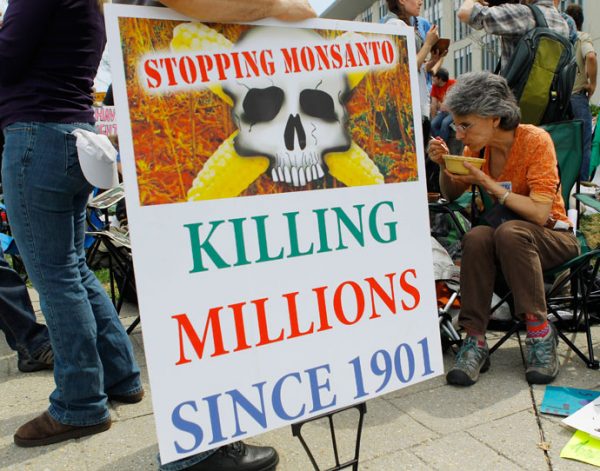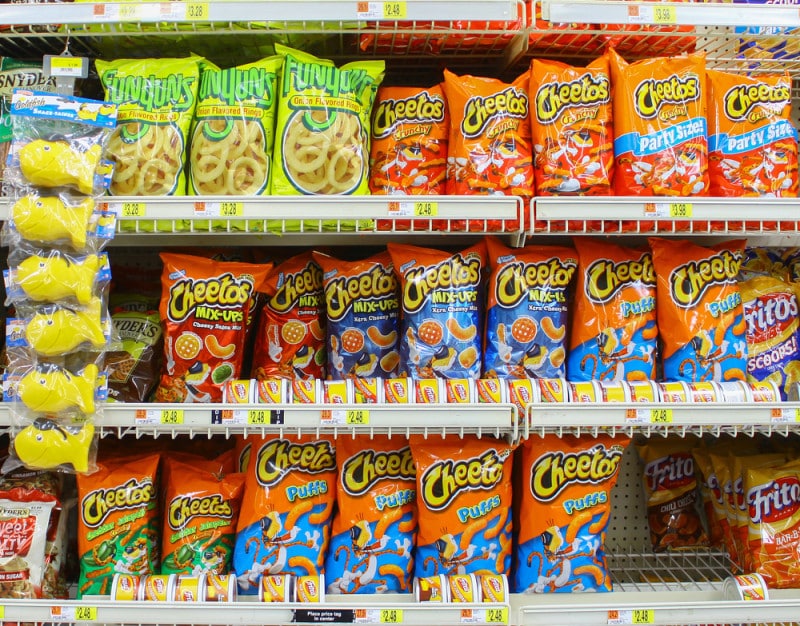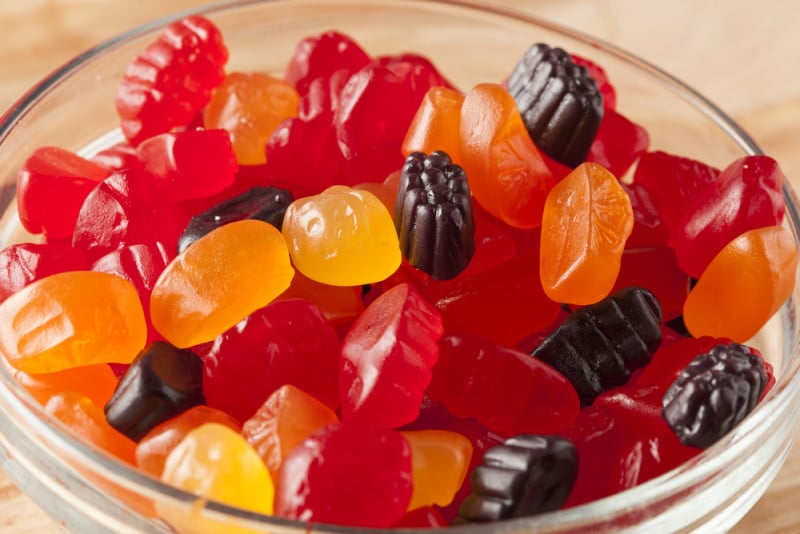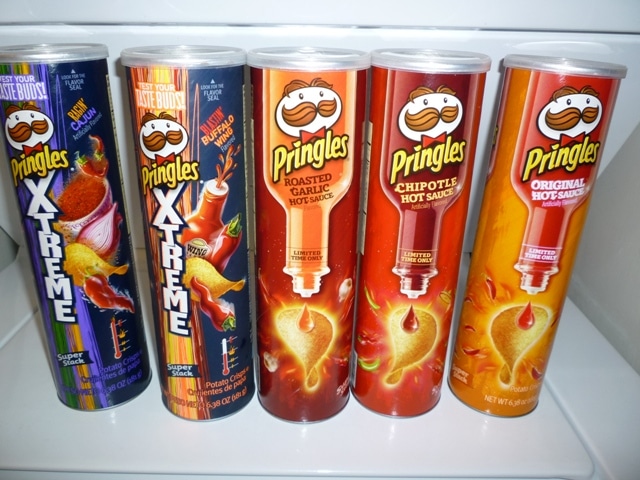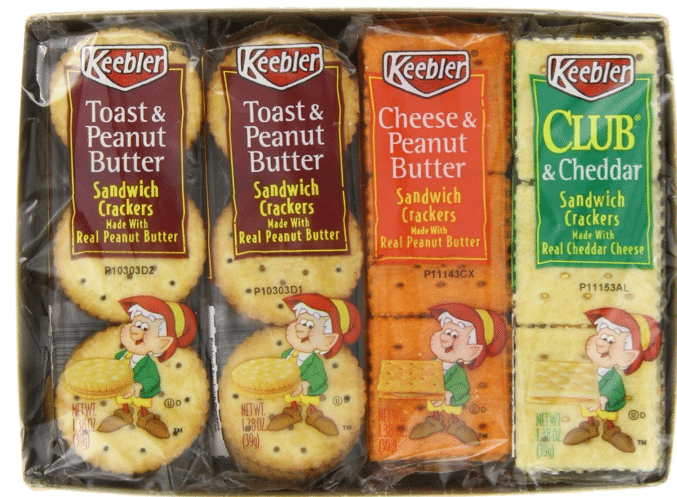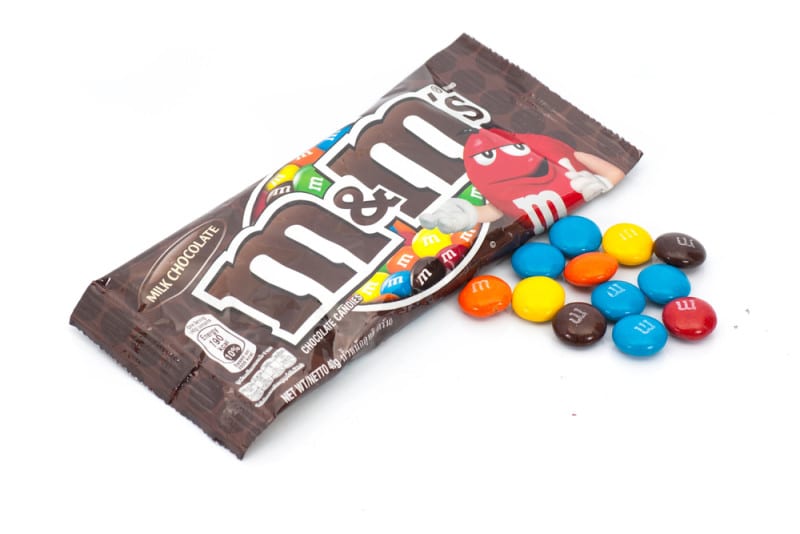Starbucks Supports Pro-GMO Company
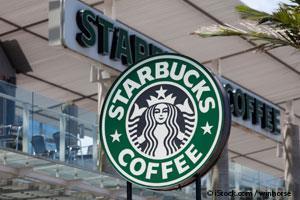
Story at-a-glance
- The state of Vermont passed the first GMO labeling law, which will require any genetically modified food sold in Vermont to be labeled
- The Grocery Manufacturers Association (GMA) has sued Vermont in an attempt to overturn the law
- Starbucks is a member of the GMA, along with Monsanto
- Boycott Starbucks and sign the petition urging them to withdraw their membership to the GMA
Starbucks has an image of being a socially responsible, environmentally friendly company. In 2013, 95 percent of their coffee was ethically sourced, and their goal is to reach 100 percent by 2015.1
Other goals include reducing water consumption by 25 percent in their company-operated stores by 20152 and mobilizing their employees and customers to contribute 1 million hours of community service per year.3
They even removed all the high fructose corn syrup and artificial trans fats, flavors, and dyes from their entire menu… so the news that this forward-thinking company might be supporting Monsanto, the world leader in genetically modified (GM) crops and seeds, in their bid to block a GMO labeling bill in Vermont might seem strange.
Is Starbucks really in cahoots with Monsanto? Are they really trying to keep you in the dark about what kinds of genetically modified ingredients are in your food and beverages? Absolutely, albeit by proxy.
It Started with Vermont's Historic GMO Labeling Bill…
On April 16, 2014, the Vermont Senate passed the first no-strings-attached GMO labeling bill (H.112) by an overwhelming margin—28-2. The bill sailed through a House/Senate conference committee and was approved by the House of Representatives on April 23.
On May 8, Governor Peter Shumlin signed the historic bill into law, which will require any genetically modified food sold in Vermont to be labeled by July 1, 2016.4 Foods containing GM ingredients would also not be allowed to be labeled "natural."
Though the bill was passed in Vermont, it has wide-reaching implications for GMOs in the US. As noted by Ronnie Cummins in the Huffington Post:5
"Strictly speaking, Vermont's H.112 applies only to Vermont. But it will have the same impact on the marketplace as a federal law.
Because national food and beverage companies and supermarkets will not likely risk the ire of their customers by admitting that many of the foods and brands they are selling in Vermont are genetically engineered, and deceptively labeled as 'natural' or 'all natural' while simultaneously trying to conceal this fact in the other 49 states and North American markets.
As a seed executive for Monsanto admitted 20 years ago, 'If you put a label on genetically engineered food you might as well put a skull and crossbones on it.'"
Monsanto and GMA Sued Vermont to Overturn GMO-Labeling Bill
Long before the bill passed through the legislative branches, Monsanto and the Grocery Manufacturers Association (GMA) had openly threatened to sue, should Vermont pass such a law.
As promised, GMA (along with the Snack Food Association, the International Dairy Foods Association, and the National Association of Manufacturers) filed the lawsuit in federal court on June 13, trying to challenge the law's constitutionality.
To date, 60 other countries have either banned GMOs or require mandatory labeling on foods that contain them, but the GMA is upset that US consumers might soon be able to distinguish between the foods that contain GM ingredients and those that do not.
Vermont estimated that eight out of ten foods at grocery stores would be affected by the new labeling requirement.6 As Cummins said, the lawsuit is an attempt to intimidate other states considering similar GMO labeling laws.
The GMA is also pushing a bill in Congress that would preempt all states from passing GMO labeling laws -- the "Safe and Accurate Food Labeling Act of 2014," dubbed "DARK" (Denying Americans the right to know) Act. Cummins told the Burlington Free Press:7
"Every U.S. citizen should be concerned when a multi-billion dollar corporate lobbying group sues in federal court to overturn a state's right to govern for the health and safety of its citizens."
Starbucks Is a Member of the GMA
If you're wondering what all of this has to do with Starbucks, here's the rub: Starbucks is a member of the GMA, right along with Monsanto. So they are, in essence, teaming up with Monsanto to keep you in the dark about the ingredients in your food.
Once word gets out, Starbucks' image will be tarnished, so let's hope the pressure from their customers will help them make positive change. As SumOfUs reported:
"Monsanto might not care what we think -- but as a public-facing company, Starbucks does. If we can generate enough attention, we can push Starbucks to withdraw its support for the lawsuit, and then pressure other companies to do the same."
To get involved, you can sign this petition from the Organic Consumers Association, which calls for Starbucks to withdraw its membership in the GMA, and in so doing also its support for the lawsuit against Vermont's food-labeling law.
The revelation of Starbucks' meddling with the GMA has already drawn ire from many of its fans. Among them, musician Neil Young recently announced that he is boycotting the coffee chain after learning of their dealings with Monsanto and their involvement to sue Vermont. According to Rolling Stone, Young wrote on his website:8
"'I used to line up and get my latte everyday, but yesterday was my last one,' Young wrote. 'Starbucks has teamed up with Monsanto to sue Vermont, and stop accurate food labeling.'"
As members of the GMA organization—as in any organization—no single member can decide actions on behalf of the group. Similarly, no single member is individually responsible for what the group as a whole decides.
So, Monsanto and Starbucks are correct in saying that neither is individually part of the lawsuit. However, in reality they are part of it by virtue of their membership in GMA.
Additionally, since neither Starbucks nor Monsanto currently has representation on the GMA Board of Directors—which makes decisions for the group—both can technically say their individual companies didn't participate in the decision to sue Vermont.
What all this adds up to is semantics—word play that Starbucks and Monsanto legally can use to deflect finger-pointing from them individually. It really doesn't make any difference whether they're involved directly or not – the parent organization is still trying to keep you in the dark about what's in your food.
What Else You Should Know About the GMA
The GMA, whose 300-plus members include Monsanto, Coca-Cola, and General Mills, is pushing a Congressional bill called the "Safe and Accurate Food Labeling Act of 2014."
As mentioned, the bill, dubbed the "DARK" (Denying Americans the Right to Know) Act, would actually preempt all states from passing GMO labeling laws.
It would also bar states from enacting laws that make it illegal for food companies to misrepresent their products by labeling GE ingredients as "natural." Last but not least, the DARK Act would also limit the FDA's power to force food companies to disclose GE ingredients.
And that's not all. By suing Vermont, this is the second time in mere months that the Grocery Manufacturers Association (GMA) is suing a state for the right to pull the wool over your eyes. During the Washington labeling campaign, the GMA got caught in a money-laundering scheme aimed at protecting the identity (and hence the reputation) of members who donated funds to the anti-labeling campaign.
The GMA was forced to reveal the donors to the aggressive anti-labeling campaign, but shortly thereafter it sued the state of Washington, arguing they should be allowed to hide their donors—which is a direct violation of state campaign disclosure laws—in order to "speak with one voice" for the interests of the food industry. Clearly, there's a concerted effort to hide who is behind this radical front group.
Earlier this year, I named the GMA "the most evil corporation on the planet," considering the fact that it consists primarily of pesticide producers and junk-food manufacturers who are going to great lengths to violate some of your most basic rights—just to ensure that subsidized, genetically engineered and chemical-dependent, highly processed junk food remains the status quo.
The primary GM crops grown in the US are corn, soy, and sugar beets, and the primary ingredients in processed food are high fructose corn syrup (HFCS), hydrogenated vegetable oils (trans fats), and refined sugar. Add in all the pesticides and hazardous fertilizers used in this chemical agriculture system, and you have the perfect formula for environmental destruction, disease and premature death.
This is the business model the GMA is protecting, and labeling GM foods will surely severely cripple it. This is why the GMA is willing to resort to everything, from illegal money-laundering schemes to irrational and wholly ludicrous lawsuits arguing for "the right" to violate disclosure laws. Your health, your rights to make your own decisions, and your financial wellbeing have absolutely nothing to do with the GMAs objections to GMO labeling. They're not protecting you from confusion, unnecessary complexities, or higher prices. They're protecting their own profits, and those profits depend on widespread consumer ignorance.
The Great Boycott Is Here
The insanity has gone far enough. It's time to unite and fight back, which is why I encourage you to vote with your wallet and boycott every single product owned by members of the Grocery Manufacturers Association (GMA), considering the fact that it consists primarily of pesticide producers and junk food manufacturers who are going to great lengths to violate some of your most basic rights.
This is just to ensure that subsidized, genetically engineered and chemical-dependent, highly processed junk food remains the status quo. This includes both natural and organic brands. You can start by using the list in the table below. The recent GM labeling victory in Vermont clearly shows that we have the power to incite great change. In this case, you can help change the food system by taking decisive action with your food dollars.
"We flood their Facebook pages, tarnish their brand names. We pressure financial institutions, pension funds and mutual funds to divest from Monsanto and the other GMA companies. Our motto for Monsanto and GMA products must become: Don't buy them. Don't sell them. Don't grow them. And don't let your financial institution, university, church, labor union or pension fund invest in them," Ronnie Cummins of the Organic Consumers Association (OCA) writes.9
"As soon as the GMA files a lawsuit against Vermont, the Organic Consumers Association, joined by a growing coalition of public interest groups, will launch a boycott and divestment campaign directed against all of the 300 GMA companies and their thousands of brand name products—including foods, beverages, seeds, home and garden supplies, pet food, herbicides and pesticides."
So far, between 2012 and 2014, Monsanto and the GMA have successfully blocked GMO labeling legislation in over 30 states, at a price tag of more than $100 million! These funds were received from the 300+ members of the GMA, which include chemical/pesticide, GE seed, processed food industries… and Starbucks! Together, these industries are working in a symbiotic fashion to grow, subsidize, and manufacture foods that have been clearly linked to growing obesity and chronic disease epidemics. As noted by Ronnie Cummins:
"Until now the GMA colossus has ruled, not only in Washington DC, but in all 50 states. But now that Vermont has passed a trigger-free GMO labeling law, and Oregon is poised to do the same in November, the balance of power has shifted.Monsanto, the GMA and their allies are in panic mode. Because they know that when companies are forced to label or remove GMOs, and also are forced to drop the fraudulent practice of labeling GE-tainted foods as 'natural' or 'all natural,' in one state, they will have to do it in every state. Just as they've been forced to do in Europe, where mandatory GMO labeling has been in effect since 1997."
Are You Supporting Those Who Have Repeatedly Taken a Stand Against Your Health and Right to Know?
To defeat the GMA lawsuit against Vermont, money must be raised for legal assistance to the state. We must also intensify any and all efforts to educate others and put pressure on the marketplace to quell the GMAs radical power grabs. To this end, please make a donation to the Organic Consumers Fund today.
Other equally if not even more important ways you can help is by refusing to invest in GMA member companies—even if indirectly through retirement and mutual funds. With enough pressure, we can pressure institutional investors like Fidelity, Vanguard, and State Street to dump the stocks they have in these companies. Moreover, we need to boycott ALL of the 300 companies who are still members of the GMA. Combined, they produce more than 6,000 brand name products, and all of these products are on the boycott list. This includes:
Foods
|
Beverages
|
Seeds
|
Home and garden supplies
|
Pet foods
|
Herbicides and pesticides for home and professional use
|
This may seem as a monstrously difficult task... but if we work together and individually make an effort, collectively we can do it. There are 316 million that live in the US, and each person makes multiple purchasing and investment decisions each and every day of the year. Every action you take from here on counts. Pro-organic consumer groups will also launch programs placing emphasis on boycotting "Traitor Brands," meaning natural and organic brands that are actually owned by members of the pro-GMO GMA. As noted by Cummins:
"Health-conscious and green-minded consumers often inadvertently support the GMA when they buy brands like Honest Tea, Kashi, Odwalla and others whose parent companies, all members of the GMA, have donated millions to defeat GMO labeling initiatives in California (Prop 37) and Washington State (I-522)."
As a sign of solidarity, please sign the Boycott Pledge now.

Traitor Brands
While I cannot list all of them here, some of the 50 "natural" and/or organic Traitor Brands targeted by this boycott include those listed below. The reason for not focusing the boycott on the conventional parent companies is because pro-organic health-conscious consumers rarely buy Coca-Cola, Diet Pepsi, or sugary breakfast cereals to begin with. The only way to really put pressure on these parent companies is by avoiding the brands they market to organic consumers; the brands you actually typically buy.
"Let's be clear. Junk Food and beverage companies who are members of the GMA are gobbling up organic and 'natural' brands because they recognize the huge profit potential in the fast-growing organic and natural markets. They want our business. If we stop buying their brands, they know there's a good chance we'll find alternative brands. And we might never look back," Cummins writes.
| Natural/Organic Traitor Brand | Owned By/Parent company |
|---|---|
| IZZE | PepsiCo |
| Naked Juice | PepsiCo |
| Simply Frito-Lay | PepsiCo |
| Starbucks Frappuccino | PepsiCo |
| Honest Tea | Coca-Cola |
| Odwalla | Coca-Cola |
| Gerber Organic | Nestle |
| Sweet Leaf tea | Nestle |
| Boca Burgers | Kraft/Mondelez |
| Green and Black's | Kraft/Mondelez |
| Cascadian Farm | General Mills |
| Larabar | General Mills |
| Muir Glen | General Mills |
| Alexia | ConAgra |
| Pam organic cooking sprays | ConAgra |
| Bear Naked | Kelloggs |
| Gardenburger | Kelloggs |
| Kashi | Kelloggs |
| Morningstar Farms | Kelloggs |
| Plum Organics | Campbells |
| Wolfgang Puck organic soups | Campbells |
| RW Knudsen | Smuckers |
| Santa Cruz Organic | Smuckers |
| Smuckers Organic | Smuckers |
| Dagoba | Hersheys |
| Earthgrain bread | Bimbo Bakeries |
| Simply Asia | McCormick |
| Thai Kitchen | McCormick |
Nine Additional Ways to Take Your Power Back
In addition to not buying Traitor Brand foods or beverages (even if they're certified organic), here are nine ways you can take power back from the corporate bullies that make up the Grocery Manufacturers Association:
- Stop buying all non-organic processed foods. Instead, build your diet around whole, unprocessed foods, especially raw fruits and vegetables, and healthy fats from coconut oil, avocadoes, organic pastured meat, dairy and eggs, and raw nuts
- Buy most of your foods from your local farmer's market and/or organic farm
- Cook most or all your meals at home using whole, organic ingredients
- Frequent restaurants that serve organic, cooked-from-scratch, local food. Many restaurants, especially chain restaurants (Chipotlé is a rare exception), use processed foods made by GMA members for their meals
- Buy only heirloom, open-pollinated, and/or organic seeds for your garden. This includes both decorative plants and edibles
- Boycott all lawn and garden chemicals (fertilizers, pesticides, etc.) unless they are "OMRI Approved," which means they are allowed in organic production. If you use a lawn service, make sure they're using OMRI Approved products as well
- Become an avid label reader. If a GMA member company owns the product, no matter what it is, don't buy it
- Download the Buycott app for your smartphone, which allows you to scan products to find out if they're part of the boycott before you buy them
- Join the Organic Consumers Association's new campaign, "Buy Organic Brands that Support Your Right to Know"
To learn more about this boycott, and the traitor brands that are included, please visit TheBoycottList.org. I also encourage you to donate to the Organic Consumers Fund. Your donation will help fight the GMA lawsuit in Vermont.
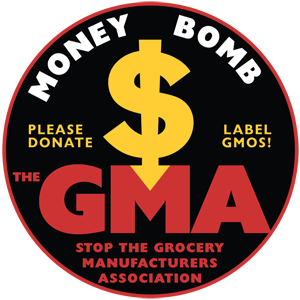
Voting with your pocketbook, at every meal and coffee-shop stop, matters. It makes a huge difference. By boycotting GMA member Traitor Brands, you can help level the playing field, and help take back control of our food supply. And as always, continue educating yourself about genetically engineered foods, and share what you've learned with family and friends.
